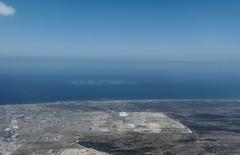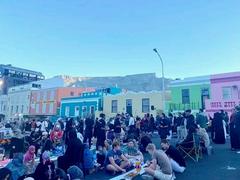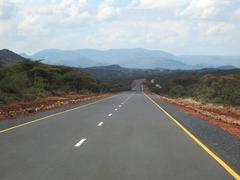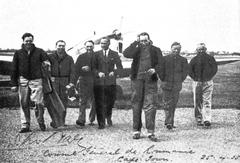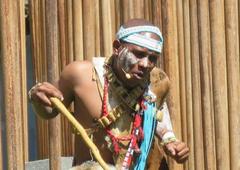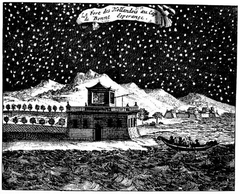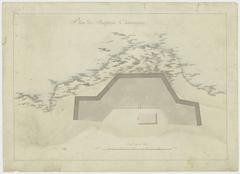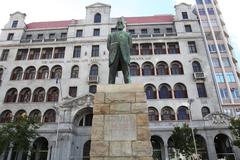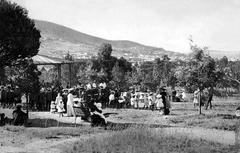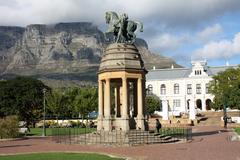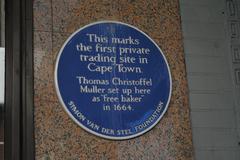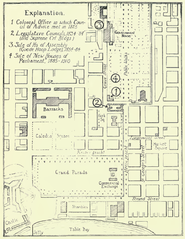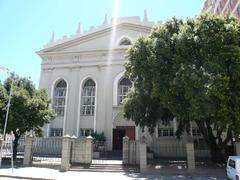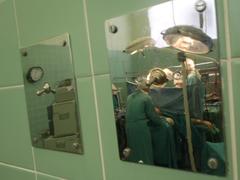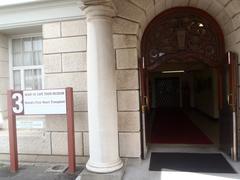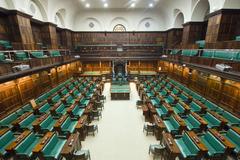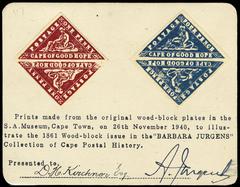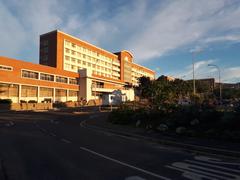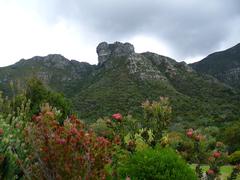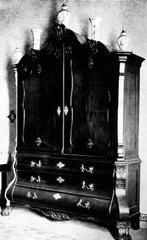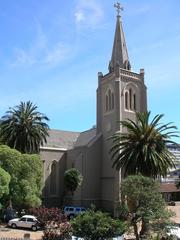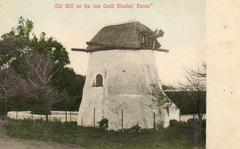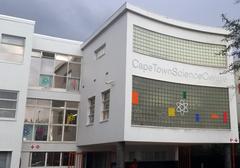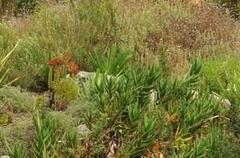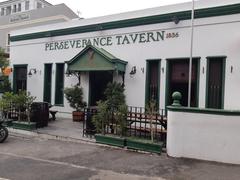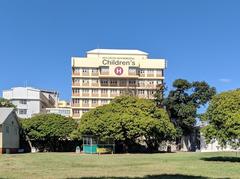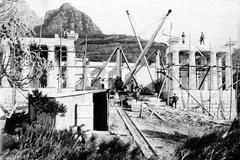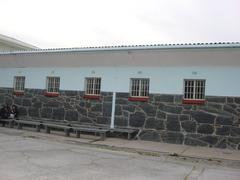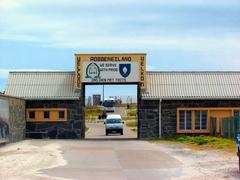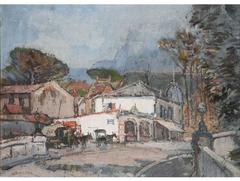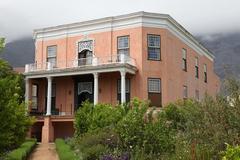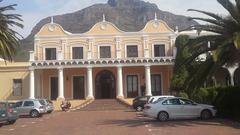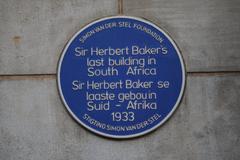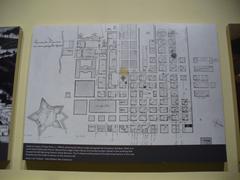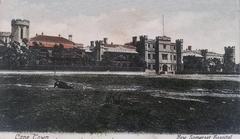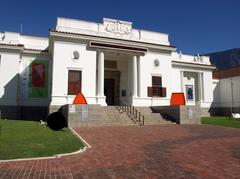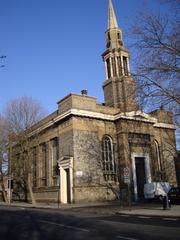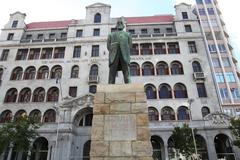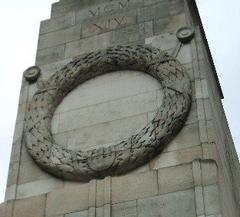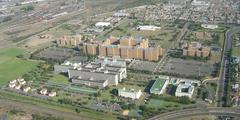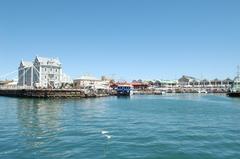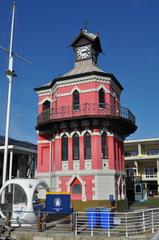Western Cape Archives and Records Service, Cape Town: Visiting Hours, Tickets, and Visitor Information
Date: 03/07/2025
Introduction
The Western Cape Archives and Records Service (WCARS) is a cornerstone of South Africa’s documentary heritage. Located centrally in Cape Town, WCARS preserves over three centuries of history, encompassing colonial, apartheid, and post-apartheid eras. Established in 1876 and housing records dating back to the Dutch East India Company’s arrival in 1651, the archives offer indispensable resources for historians, genealogists, researchers, and tourists interested in Cape Town’s historical legacy.
The modern facility at 72 Roeland Street features climate-controlled storage, reading rooms, and conservation labs, ensuring the long-term preservation of invaluable materials. With free admission, expert staff, and a range of public programs, the archives are both accessible and engaging for all visitors. This guide provides essential information on visiting hours, tickets, access, and what to expect during your exploration of the Western Cape Archives.
For more details, visit the Western Cape Government Archives page or explore Culture Connect SA for guided tour options.
Table of Contents
- Introduction
- Historical Evolution of the Western Cape Archives and Records Service
- Practical Visitor Information: Hours, Tickets, and Access
- Institutional Mission and Core Functions
- Frequently Asked Questions (FAQ)
- Plan Your Visit
- Suggested Visuals and Media
- Statistical Overview
- References
Historical Evolution of the Western Cape Archives and Records Service
Origins in Colonial Administration
WCARS traces its roots to the earliest days of European settlement at the Cape. The Dutch East India Company (VOC) meticulously recorded ship logs, correspondence, and administrative records, forming the foundation of South Africa’s oldest archival collection (Western Cape Government). As control shifted between Dutch and British administrations in the 18th and 19th centuries, systematic preservation of governmental, legal, and civic documents became critical.
Institutional Development and Legislative Milestones
The formal establishment of the Cape Archives in 1876 recognized the need for a dedicated archival institution. The Archives Act of 1922 mandated preservation of public records, while the National Archives and Records Service of South Africa Act (Act No. 43 of 1996) modernized the framework, emphasizing democratized access, transparency, and accountability (South African Government).
Architectural and Physical Expansion
Since 1990, WCARS has operated from a purpose-built facility on Roeland Street, adjacent to the Company’s Garden. The building features climate-controlled storage, reading rooms, and conservation laboratories that meet international archival standards (Western Cape Archives Visitor Information).
Collections and Holdings
WCARS houses one of the most comprehensive archival collections in the Southern Hemisphere, including:
- VOC Records (1652–1795): Ship manifests, correspondence, legal documents
- British Colonial Records (1795–1910): Administrative, legal, and land records
- Union and Apartheid-Era Records (1910–1994): Government documents, judicial records
- Post-Apartheid Records (1994–present): Democratic governance documentation
Additional materials include private papers, maps, photographs, and audiovisual items totaling over 20 kilometers of shelving (Western Cape Archives Holdings).
Practical Visitor Information: Hours, Tickets, and Access
Visiting Hours
- Monday to Friday: 08:30 AM – 4:30 PM
- Closed: Weekends and public holidays
(Please note: Some sources list an opening time of 08:00 AM. Always confirm current hours before visiting.)
Admission and Tickets
- Admission: Free for all visitors
- Registration: Required at the front desk for access to reading rooms
Location and Directions
- Address: 72 Roeland Street, Cape Town, adjacent to the Company’s Garden
- Public Transport: Serviced by major bus routes and central taxi ranks
- Parking: Limited street parking; public transport recommended
Accessibility
- Wheelchair accessible with ramps, elevators, and accessible restrooms
- Assistance available upon request
Onsite Amenities and Services
- Reading Rooms: Supervised, with access to original documents and microfilm
- Reference Services: Expert staff assist with research
- Conservation Lab: Demonstrates preservation efforts
- Lockers: Available for personal items (large bags not allowed)
- Wi-Fi: Not routinely available
Guided Tours and Special Events
- Monthly guided tours (advance booking recommended)
- Annual Open Day and special exhibitions (Western Cape Archives Events)
- Behind-the-scenes tours offered in collaboration with Culture Connect SA
Photography and Visual Media
- Non-flash photography allowed in public areas; flash and tripods require approval
Nearby Attractions
- The Company’s Garden
- Iziko South African Museum
- Cape Town City Hall
- Castle of Good Hope
Institutional Mission and Core Functions
Mandate and Legal Framework
WCARS operates under national and provincial legislation, focusing on:
- Preservation: Safeguarding valuable records
- Access: Facilitating research and public engagement
- Accountability: Supporting transparent governance
- Records Management: Advising government bodies (National Archives Act)
Public Engagement and Research Support
WCARS serves historians, genealogists, students, and the public through:
- Reading rooms and reference services
- Educational outreach and family history workshops
- Archives awareness programs (Western Cape Archives Events)
Conservation and Digitization
Ongoing conservation and digitization projects protect fragile materials and enhance global access. Collaborations with institutions like Robben Island Museum and the University of the Western Cape support innovation in preservation (Digital Archives Project, IOL).
Cultural Significance and Inclusivity
WCARS is committed to documenting marginalized voices and supporting transitional justice, including contributions to the Truth and Reconciliation Commission (Transformation in Archives).
International Collaborations
WCARS is a member of the International Council on Archives and collaborates with global partners for knowledge exchange and archival repatriation.
Frequently Asked Questions (FAQ)
Q: What are the visiting hours?
A: Monday to Friday, 08:30 AM–4:30 PM (confirm for public holidays).
Q: Is there an admission fee?
A: No, admission is free.
Q: Are appointments required?
A: Registration is required on arrival; book in advance for tours or group visits.
Q: Is the facility wheelchair accessible?
A: Yes.
Q: Can I take photographs?
A: Non-flash photography is permitted in public areas; special permission required for flash or tripod use.
Q: Are digital archives available?
A: Many collections are digitized and accessible via the WCARS or NAAIRS websites.
Q: What attractions are nearby?
A: The Company’s Garden, Iziko South African Museum, Cape Town City Hall, and the Castle of Good Hope.
Plan Your Visit
Explore South Africa’s past and present at WCARS. For the latest updates on hours, events, and digitization projects, visit the official website. Download the Audiala app for guided tours and easy access to Cape Town’s historical sites.
Suggested Visuals and Media
- High-resolution images of the archives’ facade (alt text: “Western Cape Archives building facade in Cape Town”)
- Interior reading room photos (alt text: “Visitors using reading rooms at Western Cape Archives”)
- Digitized document samples (alt text: “Digitized VOC ship manifest from Western Cape Archives”)
- Map showing location relative to the Company’s Garden
- Virtual tour link if available
Statistical Overview
- Established: 1876
- Holdings: Over 20 linear kilometers of records
- Annual Visitors: ~6,000 (2023)
- Staff: 50+ professional archivists and support personnel
- Digitized Records: Over 1 million pages (2024) (Annual Report 2022-2023)
Final Tips for Visitors
The Western Cape Archives and Records Service is more than a repository—it is a dynamic center for research, education, and community engagement. Its free access, expert support, and diverse programming make it an essential stop for anyone interested in South Africa’s documentary history. Pair your visit with nearby attractions like the Company’s Garden or the Iziko South African Museum for a comprehensive cultural experience.
Stay updated by consulting the official website and consider the Audiala app for added convenience.
References
- Western Cape Government Archives and Records Service
- Culture Connect SA – Behind the Scenes Tour
- Culture Connect SA – Visitor Guide
- National Archives and Records Service of South Africa Act (Act No. 43 of 1996)
- Western Cape Archives Annual Report 2022-2023
- Digital Archives Project, Western Cape Government
- Archives and Memory in South Africa
- Robben Island Museum and UWC Team Up to Preserve Mayibuye Archives
- Western Cape Archives and Records Service Official Website
